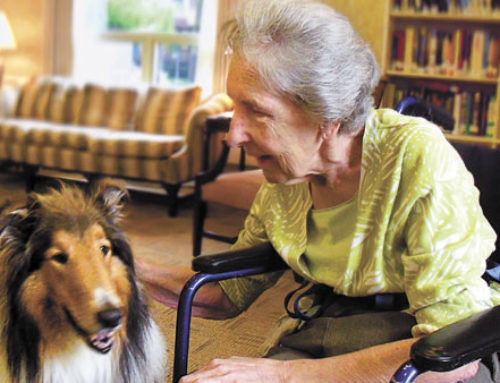Alzheimer’s disease is a type of dementia characterized by cognitive deterioration that typically occurs later in life.
Over five million Americans are living with Alzheimer’s disease and the number is rising. While the early stages of Alzheimer’s may be attributed to age-related issues such as forgetfulness, this condition is an entirely different issue.
The following 4 A’s describe symptoms that could indicate Alzheimer’s disease is present in a loved one.
-
Amnesia
Amnesia constitutes memory loss that could be short-term or long-term.
For many patients with Alzheimer’s, they may have difficulty remembering recent events in the beginning, but as the condition progresses, their long-term memory can be affected as well.
Forgetfulness isn’t the same as the memory loss experienced in Alzheimer’s disease. While an older person may temporarily forget things, a person with Alzheimer’s may forget things almost immediately after they happen and not be able to recall them at all later on.
-
Apraxia
Apraxia is an inability to remember how to conduct certain movements or activities.
Someone with Alzheimer’s disease may want to do something and have the physical ability to do it, but their brain has an issue instructing the body to do so. For example, they may want to and be able to eat, but not remember how to feed themselves.
In affecting cognitive function, Alzheimer’s will consequently affect the physical ability of a person to perform a task. As a result, their ability to do everyday activities that they’ve done for years may become difficult or eventually impossible for them, such as eating, walking, or bathing.
-
Agnosia
Agnosia happens when the brain has a problem understanding the information it receives from the senses. In other words, agnosia is an inability to recognize basic things, including identifying smells, sounds, or people.
With agnosia, it’s important for loved ones to understand that the patient’s senses are not impaired. For example, a person who can’t understand what you’re saying won’t better understand if you speak louder. It’s not their hearing that’s damaged; it’s the part of their brain that’s responsible for interpreting what they hear.
-
Aphasia
Aphasia impacts a person’s ability to express themselves. Aphasia also affects how people receive spoken information.
A person with Alzheimer’s who displays symptoms of aphasia may be unable to find the words they want to say. They may hesitate while trying to think of the word—this is called anomia—or even replace words with other phrases that are more readily available to them.
For instance, a person may be referring to a camera but instead, say “picture taker” because they can’t remember the word “camera”. They may also mix up sounds in a word to form different words.
In later stages of Alzheimer’s, a person may use made-up words or repeat certain sounds or phrases.
Getting Help for Alzheimer’s
Are you worried that someone you know has Alzheimer’s disease? Your loved one’s physician can conduct tests to rule out other possible causes of these symptoms before making an official diagnosis. Knowing these 4 A’s of Alzheimer’s can help you recognize the signs of cognitive decline. The Vision Group works in all aspects of memory care. We are here to help.




